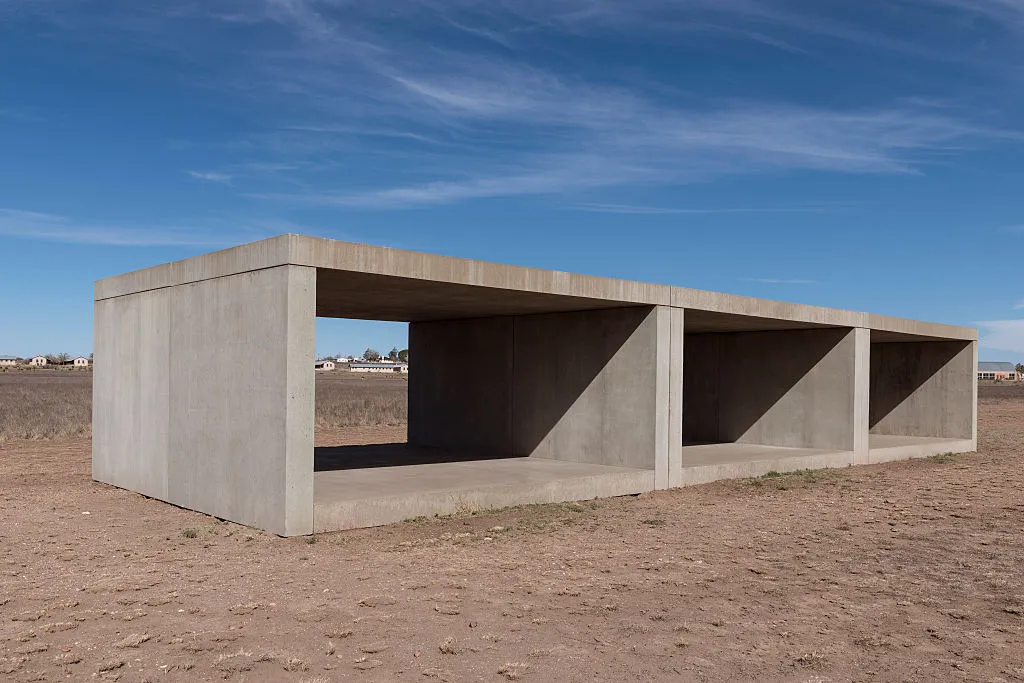
The Texas Historical Commission (THC), a group that oversees preserved sites in the state, announced that a series of buildings repurposed by minimalist artist Donald Judd and overseen by two artist foundations, has been added to a national register that gives protected status to long-standing cultural sites.
The listing makes the artist’s compound in the West Texas town entitled to preservation efforts in the future.
The designation, approved by the U.S. National Park Service in May 2025, was part of an application sent in by the Texas commission this fall that aimed to expand a pre-existing military district to include the Judd Foundation, which share a location.
Now, what was previously the town’s Fort D.A. Russell Historic District will include the Judd Foundaiton’s name and will also span 15 buildings and a single large-scale installation, all rehabbed or produced by Judd between 1973 up until his death in 1994.
The revamped compound brought widespread attention to Marfa, home to a former military base that closed in the 1960s. Judd arrived in the early 1970s, where he spent the next two decades converting the defunct complex into a site for his outdoor installations and studio spaces that would eventually become home to the Chinati and Judd Foundations, which operate as separate entities.
Judd made careful alterations to elements of the structures that were left behind after the base closed and had freedom to expand how he wished with funding coming from New York’s Dia Foundation starting in 1978. At the time, Dia was newly established and had a board that was set on helping artists set up ambitious one-man museums with extravagant budgets.
When Judd came to Presidio County in 1971, he wanted to take over a segment of land to build works on a larger scale, a practice that wasn’t viable in New York City, were he was located before. Nine of the buildings and the monumental artwork are managed by the Chinati Foundation, which Judd founded in 1986 to exhibit larger works.
Another six buildings are operated by the Judd Foundation, which preserves the artist’s former residential and working spaces.
This is the second Judd-linked historic district in the town, following the Central Marfa Historic District’s designation in 2022.

